What happens at Christmas in the Netherlands? It’s definitely cold and dark outside — so yes, the holidays are upon us. It’s bijna (nearly) Christmas in the Netherlands!
You may be new to the Netherlands and be a bit perplexed with all the celebrations that are about to happen (or have just happened), some of which are rather odd, or new, or maybe you never heard of them.
So, how does Christmas in the Netherlands begin?
For me, it all starts with Sint Maarten at the beginning of November.
You may or may not have seen or heard little groups of children holding paper lamps, walking along the streets, and singing “11 november is de dag, dat mijn lichtje, dat mijn lichtje branden mag“, (11 November is the day, that my light, that my light may shine bright), knocking on doors and requesting candy.
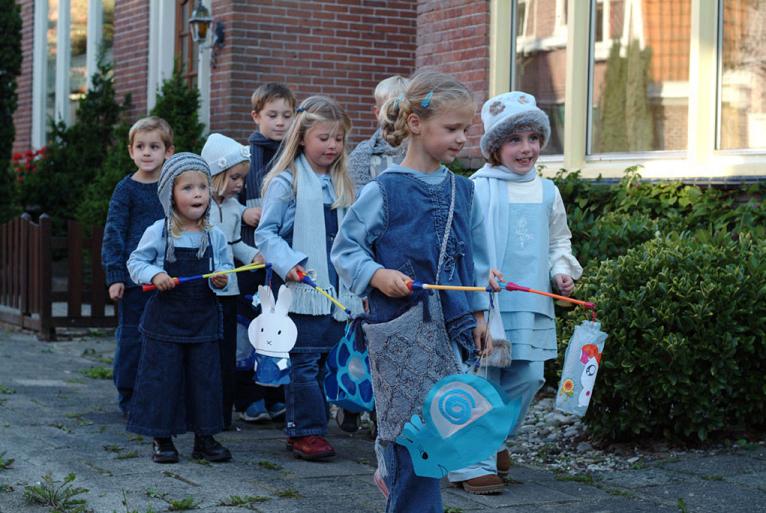
But no, this is not Halloween and has little to do with it.
Sint Maarten in the Netherlands
Sint Maarten is a festivity celebrated mostly in the southern catholic provinces (Limburg) and those adjacent to Germany.
Although generally Protestant, Utrecht, whose patron saint is Saint Martin, celebrates it as well as other small localities like Voorburg via the lampionoptocht, or light parade.
This day commemorates Saint Martin of Tours, a bishop of Gaul (modern-day France).
While Martin was a soldier in the Roman army, he experienced a vision, which became the most-repeated story about his life.
One day as he was approaching the gates of the city of Amiens, he met a scantily clad beggar.
READ MORE | Sint-Maarten (Dutch Halloween)
Martin impulsively cut his military cloak in half to share with the man (he only gave half of his cloak to the man in need, as the other half belonged to the Roman empire).
That night, Martin dreamt of Jesus wearing the half-cloak he had given away. He heard Jesus say to the angels: “Martin, who is still but a catechumen, clothed me with this robe.”
Anyhow, during the night of Sint Maarten, little children walk together holding lamps and giving away fruit and candy to remember the generosity of Sint Maarten.
Sinterklaas in the Netherlands
Roughly a week after Sint Maarten, specifically the first Saturday after November 11 (see above), another very famous Saint, Nicholas (better known as Sinterklaas) makes his entrance into the Netherlands.
He arrives by steamboat, from “Spain”, on a boat full of presents and mandarins.
I still did not understand why he decided to set home in the Iberian Peninsula if he is supposed to be a Turkish bishop. But I guess he just thought, as many other Dutch citizens do, that Spain was a great place to retire.
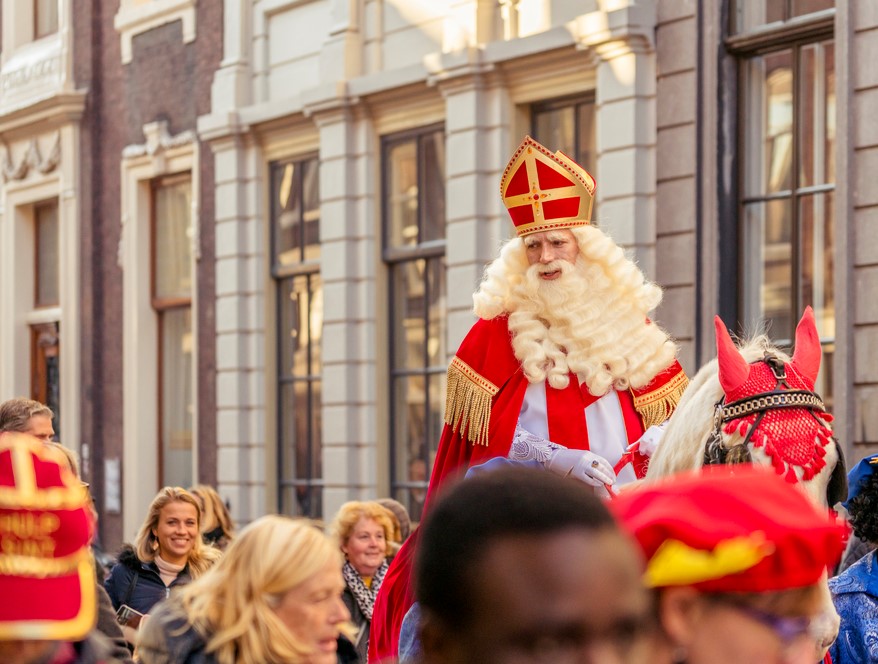
Anyhow, Saint Nicholas is welcomed with great expectation, particularly from the children.
All of the news outlets follow his arrival — it’s a major event as he visits different cities, accompanied by his controversial helpers, the Pieten, who deliver presents, mandarins, and spice cookies, in addition to spying on the children and pulling pranks every chance they get.
I don’t think there is another country that takes make-believe to such a high level.
READ MORE | Zwarte Piet: the full guide to the Netherlands’ most controversial tradition
There is even a channel dedicated to the daily activities of Sinterklaas, and everyone participates in the collective fantasy.
At my daughter’s school Rommel (messy) Piet visited, together with “disco” Piet, and as we arrived one morning to school, all the lights were off, dance music was blasting, chairs were upside down, and everything was out of place.
The kids get super into it, expecting little treats at all times, leaving their shoes by the window every night, and blaming all kinds of happenings (like missing things) on Piet.
All this expectation happens during the three weeks between November 15 and December 5.
Pakjesavond in the Netherlands
On December 5, known as pakjesavond (evening of presents), a loud thump is heard outside the door, and suddenly, when you open it, a big burlap bag appears — full of presents.
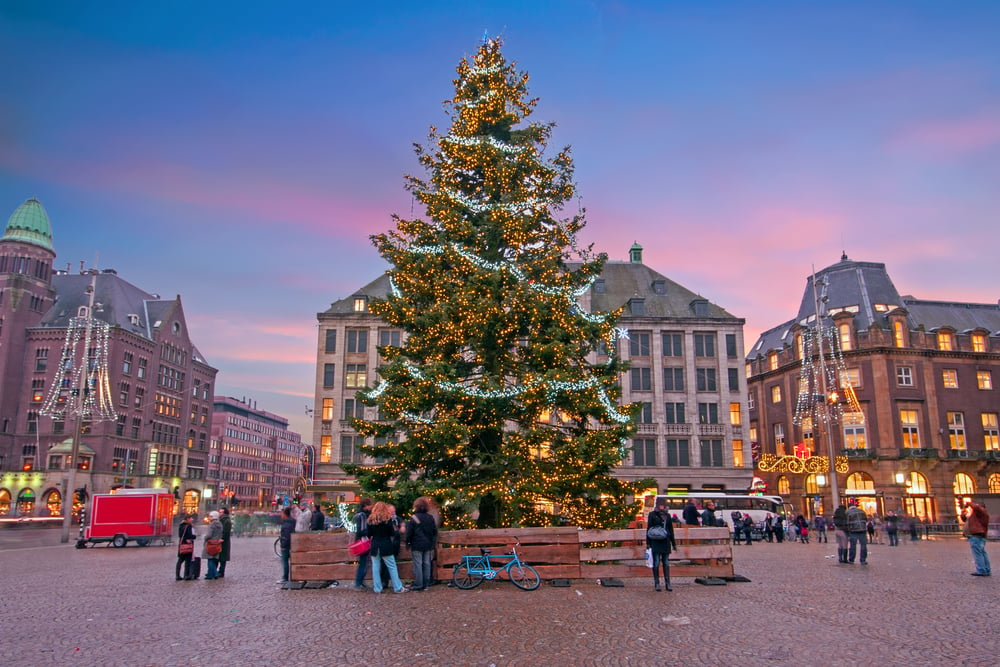
Families gather to celebrate and eat spice cookies, hot chocolate, tea, and open presents. Some families also dedicate Sinterklaas poems to each other, making jokes about each other’s qualities.
Christmas decorations in the Netherlands
Please be aware that no Christmas tree or other Christmas decorations are “allowed” to be set up until after Sinterklaas has left, that is, after December 5.
Some people take this very seriously — it is considered rude, disrespectful, and impolite even to dare to think of Christmas until all the Sinterklaas craziness is over.
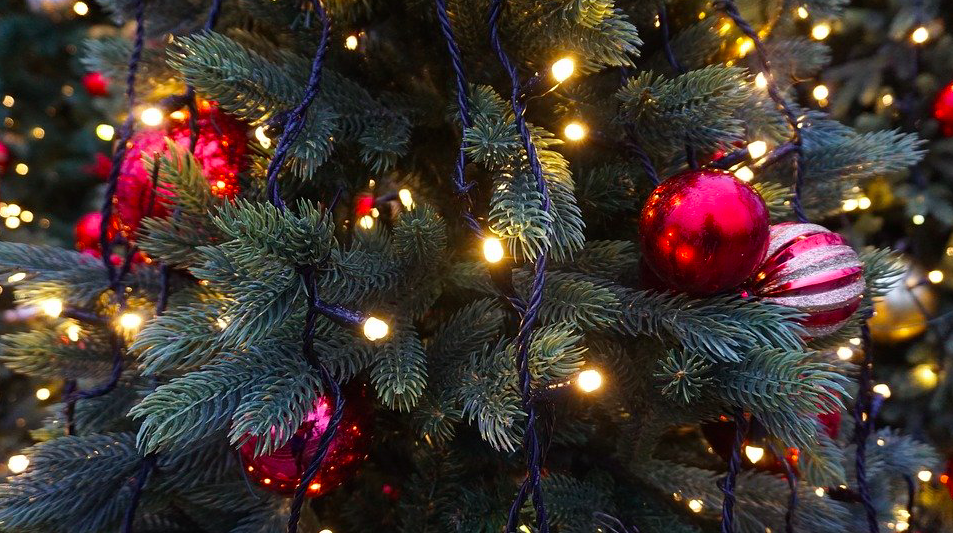
Anyhow, by December 6, the whole country finally starts preparing for Christmas and the New Year. But if you thought that Christmas Eve was a thing, you would be wrong.
No, December 24 is still a regular day for the Dutch. For most companies, it is still a regular working day.
If you are Catholic, the traditional mass will take place, but other than that, NOTHING happens on the 24th.
Christmas Day in the Netherlands
Christmas is 25 December, but the Dutch refer to this as the 1st Day of Christmas. This is the day when families gather, have dinner together and exchange presents.
There is, however, no turkey, fruit cake or any complicated dish.
The Dutch, practical as they are, traditionally eat something they call gourmetten, which might leave you puzzled.
READ MORE | Gourmetten: A ‘gezellige’ evening of classic Dutch dining
It is a “make your own dinner” kind of meal in which they take out their electric raclette plank and share a meal of grilled meat, cheese, veggies and assorted sauces. That’s it.
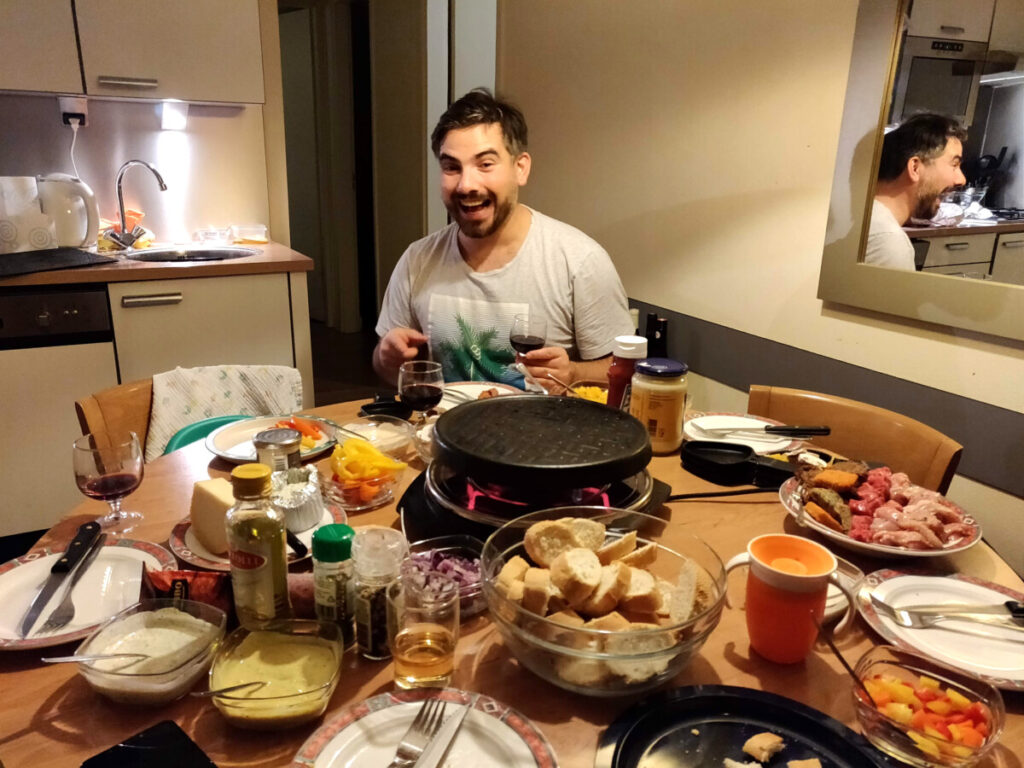
If you really want a turkey, you can order it in advance at your local butcher.
Then comes the 2nd day of Christmas in the Netherlands, which is 26 December.
This is when you normally spend time with the other side of the family, but it strikes me as weird that they still think it is Christmas because, to me, Boxing Day is when you just chill at home.
If you are Mexican, eat recalentado (warmed-up leftovers from Christmas Eve) and maybe try to score some sales.
I mean, by then, Jesus (if you are a believer) had already been born for two days! You don’t celebrate someone’s birthday two days after the actual event, or do you?
But I guess this is just another facet of Dutch’s ability to compromise, to polder, to try and avoid the ultimate yearly conflict every family has to face: “With whom do we spend Christmas this year?”
New Year’s Eve in the Netherlands
After Christmas comes a week of calm and peace.
You can visit museums, stay at home, and rejoice in the fact that darkness is slowly going away and days are starting to get longer while you wait for the New Year — that moment when everyone will rush to make a subscription at the gym and start fresh and clean.
READ MORE | The residents have spoken: NYE fireworks are officially banned in Amsterdam
As for celebrating, know that most restaurants will be closed and going out for dinner and partying with friends is not generally a thing in the Netherlands.
There are some parties, mostly at hotels, and other events but you need to make a reservation in advance, unlike other countries where you would just go out clubbing to drink away the old year and start anew.
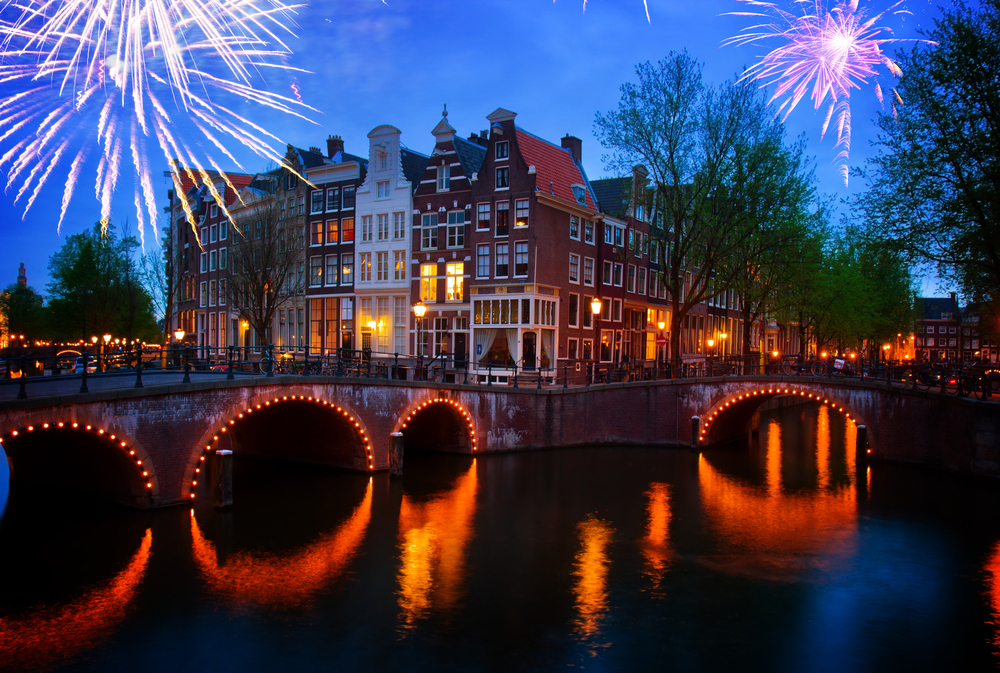
The Dutch are also unaware of the 12 grapes at midnight tradition, but luckily it is easy to find grapes if you would like to do so.
In years past, what the Dutch would actually do was go crazy buying fireworks, as it was the only day of the year when people could light their own fireworks.
As for traditional food, you shouldn’t miss oliebollen, a fried ball of dough, best eaten warm, sometimes with raisins or other fillings and sprinkled with powdered sugar.
You will see the street stands pop up pretty much everywhere. You will find them at bakeries, and you can even try to make them at home with the ready-made dough that exists for the very purpose.
After going through all this, it will be January and a brand new year.
Which Dutch traditions have you adopted and which ones have you imported from your country? Tell us in the comments!
Editor’s Note: This article was originally published in December 2018 and was updated for your reading pleasure in December 2023.

Nice article! Mostly correct, apart from the New Years Eve celebrations. It’s actually a huge thing where people get together withdraw family and friends, drink all night long, light fireworks (literally EVERYWHERE), go out to party, eat Oliebollen and basically wake up on the 2th of January:).
Yes, what I tried to convey is that, in my experience, they party -mostly- at home, if you would look for a restaurant chances are they might be closed. And yes, I forgot about the Oliebollen and the fireworks, how could I ? That part has been added now.
Saint Nicolas was not Turkish! There weren’t any Turkish at 230AD. He was a Greekorthodox Bishop.
Yes, technically you are right, as he was a bishop of Myra in Asia Minor and Turkey did not exist. What I meant though was that said city would be located in modern-day Demre, in (today’s) Turkey. I thought it would be clear, sorry for the imprecision.
At Sint Maarten children do not give away fruit and candy. They go door by door in small group, mostly accompanied by parents or older children, with their mostly home made lampions ( an english word also), sing special Sint Maarten songs and are given fruit or candy. Sint Maarten and Sinterklaas have nothing to do with Christmas and New Year. They are not in any say connected to Christmas and New Year
yes we fix it builder we do fix yes
Present giving on Christmas Day? My partner says they don’t do presents after 5 December so as a new Dutchie I need to know if that’s correct…. Or is this just his Dutch frugality..
There never used to be presents at Christmas. 5 December was the time when people exchanged presents. It’s only in recent years that some people give presents at Christmas. Sinterklaas in Netherlands has nothing to do with Christmas.